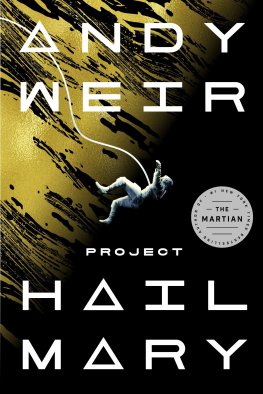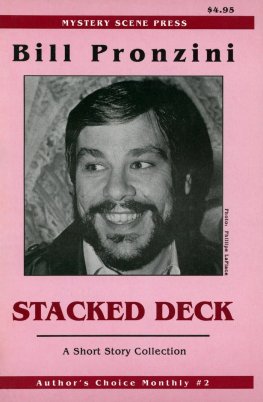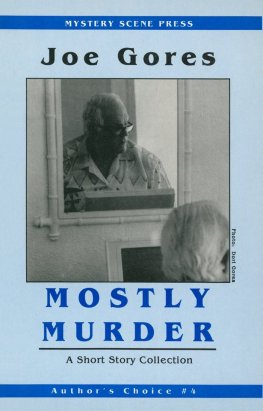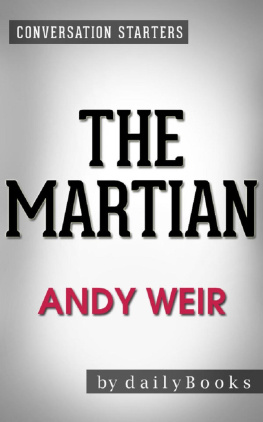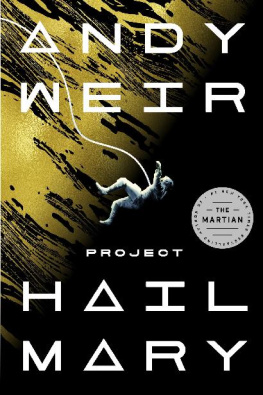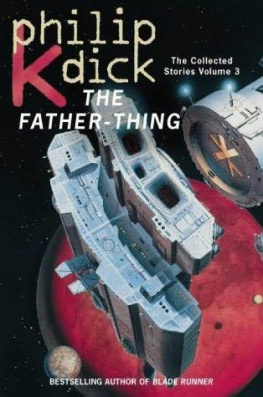Endi Vejr - Short Story Collection
Here you can read online Endi Vejr - Short Story Collection full text of the book (entire story) in english for free. Download pdf and epub, get meaning, cover and reviews about this ebook. year: 2017, publisher: galactanet.com, genre: Science fiction / Detective and thriller / Romance novel. Description of the work, (preface) as well as reviews are available. Best literature library LitArk.com created for fans of good reading and offers a wide selection of genres:
Romance novel
Science fiction
Adventure
Detective
Science
History
Home and family
Prose
Art
Politics
Computer
Non-fiction
Religion
Business
Children
Humor
Choose a favorite category and find really read worthwhile books. Enjoy immersion in the world of imagination, feel the emotions of the characters or learn something new for yourself, make an fascinating discovery.

- Book:Short Story Collection
- Author:
- Publisher:galactanet.com
- Genre:
- Year:2017
- Rating:3 / 5
- Favourites:Add to favourites
- Your mark:
- 60
- 1
- 2
- 3
- 4
- 5
Short Story Collection: summary, description and annotation
We offer to read an annotation, description, summary or preface (depends on what the author of the book "Short Story Collection" wrote himself). If you haven't found the necessary information about the book — write in the comments, we will try to find it.
Short Story Collection — read online for free the complete book (whole text) full work
Below is the text of the book, divided by pages. System saving the place of the last page read, allows you to conveniently read the book "Short Story Collection" online for free, without having to search again every time where you left off. Put a bookmark, and you can go to the page where you finished reading at any time.
Font size:
Interval:
Bookmark:
Andy Weir
SHORT STORY COLLECTION
ANTIHYPOXIANT
I am, simply put, the most brilliant medical mind in human history.
I know it sounds arrogant for me to say so, but theres a point where modesty has to give way to universally accepted facts. I invented the worlds first and only universal antihypoxiant.
If youre reading this, its likely that youre a layman, unable to grasp what an antihypoxiant is. Simply put: its a chemical that protects your bodys cells from the harmful effects of oxygen starvation. You may be thinking thats not needed very often. Drowning, perhaps? Lung diseases, maybe? Well youre wrong, of course. But it cant be helped; youre not a doctor. Or if you are, youre not one of my caliber.
Hypoxia is what kills people. Whatever the cause of death may be, the actual reason they die is because oxygen stops getting to their cells. Most notably, to their brain.
If your heart stops, blood stops moving around your body. Then your cells die because they arent getting oxygen. If you get shot and bleed to death, you dont have enough blood to transport oxygen around. Do you see? Its all about oxygen.
It took me over thirty years, but I was finally able to design a way around the problem. The trick is to have a redundant source of oxygen in your body. I formulated a molecule that can hold large numbers of oxygen atoms. Its similar in purpose to hemoglobin, though my design is better than anything God was able to churn out.
The antihypoxiant (I wont bother to give you the chemical designation, it would only confuse you) can hold up to 58 oxygen atoms per molecule. For reference, hemoglobin can only hold four. Also, the antihypoxiant is harmless to the body, can exist inside the cells themselves without affecting them, and can be in much greater quantity per volume than hemoglobin.
Ill never forget the first successful experiment. I had a disembodied rat hamstring suffused with the compound, then I just let it sit for three days. By rights, it should have been completely dead, but upon examining it, I found that the cells were still very much alive and healthy.
I got the compound perfected in the first fifteen years. The larger question was how to deliver it?
Its no use to have a medicine that has to be applied at the time oxygen transport stops. For starters, it wont be able to get around the body. And more importantly, if you have medical attention, you are less likely to need the antihypoxiant in the first place. No, it has to be something you already have.
Its not a medicine. Its a vaccination. A vaccination against death itself. Whatever your problem is, so long as there wasnt physical damage to your brain, you wont die for several days. This will give doctors time to fix whatevers wrong instead of desperately trying to keep your organs working. You can literally get shot in the heart and they will have enough time to perform a heart transplant to save your life.
So the question remained: How can it be applied? The compound is effective, but I was unable to make a version that wouldnt get cleaned out of the blood by renal functions. Thats no use. Youd have to get booster shots every day. No, the compound is most useful when it has actually entered the cells of the body. And for that, I modified a virus.
Viruses work by penetrating the cell membrane and injecting their own RNA into the cell. From there, the cells functions get supplanted to make copies of the virus. They are naturally malevolent, but they are also a powerful weapon in a medical researchers arsenal. After another decade of research, I was able to modify a virus to manufacture and deliver the compound.
The original virus was a harmless strain that usually causes mild vasculitis. It attacks the cells of arteries, veins, and capillaries. This was ideal, because it allowed my modified version to deliver the antihypoxiant to those cells. The vascular system is, by definition, positioned where oxygen is needed.
I tested on cats, dogs, and eventually monkeys. The system worked perfectly. There were no adverse effects, and the animals now had a short-term immunity from death. I stopped the monkeys heart several times, the longest for two full days. When revived, he was unharmed.
This was the breakthrough Id waited for my entire life. But the FDA was the next step. After animal trials comes human trials. First with a tiny control group, then with larger and larger groups and so on. Getting a drug through the FDA can take ten years and that simply wouldnt do.
I was 57 years old at that point. Waiting another ten years would make me 67. Then, it would take at least another five to ten years before the Nobel committee recognized my genius and awarded me the prize I so richly deserve. There was a chance I wouldnt live to reap my due fame!
Also, of lesser importance but still relevant, millions of peoples lives could be saved by my compound in that time.
No, the FDA was an impediment. It was time to act. Remember, the manufacture and delivery is done by means of a virus. All I had to do was breed up the virus and direct its evolution toward being more contagious. That took a mere five years.
I released the virus in several major population areas all over the world. And the results were ideal! People started surviving accidents they should have died in. They lived long enough for medical help to save them. Soon, the entire world had been modified. Millions upon millions of people owed their continued lives to me!
Unfortunately, I built up an immunity to the delivery virus while I was working with it. Sadly, that means I dont get to benefit from my own invention, because the virus cant deliver it to my vascular system. Its a shame, because my brilliance should be maintained for humanitys sake. But alas I will have to take my chances with death.
All went well for a couple of months, but then problems started to arise. It turns out that the higher cognition centers of the brain have a slightly different blood-brain barrier setup. My compound, while transitioning into those parts of the brain, changes slightly due to the barrier and ends up malfunctioning. Instead of storing oxygen, the compound combines it with a protein present in cranial vascular tissue and renders it inert. So the nearby brain cells die from lack of oxygen as the antihypoxiant collects it all and ruins it.
Theres irony there.
In any event, it caused people to slowly lose their higher cognition abilities. They retained motor control, sensory input, fight or flight reflex, etc. But they lost their ability to think. Admittedly this is a flaw in the system, but I cant be held responsible for that. Cats, dogs, and monkeys dont have that part of the brain at all. How was I to know it would be a problem?
Most people have now descended into simple creatures operating off their lower animal functions. They roam around, seeking food. Theyre actually quite dangerous, because they will try to eat you. Unfortunately, if you shoot them, they dont stop. My antihypoxiant ensures all their tissues continue to work even without bloodflow. The only way to kill them is to shoot them in the head.
Society is ruined; all forms of law and order are gone; and roving hordes of mindless people wander the streets. Some could argue this is my fault, but thats absurd. Clearly the FDA is at fault. If it werent for their slow process, I wouldnt have been forced to distribute the compound like I did.
In any event, theres a horde of zombies pounding on the door. Time to grab my shotguns and move on. I think they can track me by smell. I should do a study on it.
ACCESS
Holding a cup of coffee in one hand and several folders in the other, he dragged his chair out from behind his desk and plopped down in to it.
Sipping the all important morning brew, he opened the first of the folders and read the summary on the front page. It was a minor matter, but something hed need to deal with eventually. Some things just couldnt be delegated to subordinates.
Font size:
Interval:
Bookmark:
Similar books «Short Story Collection»
Look at similar books to Short Story Collection. We have selected literature similar in name and meaning in the hope of providing readers with more options to find new, interesting, not yet read works.
Discussion, reviews of the book Short Story Collection and just readers' own opinions. Leave your comments, write what you think about the work, its meaning or the main characters. Specify what exactly you liked and what you didn't like, and why you think so.

